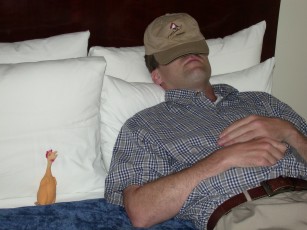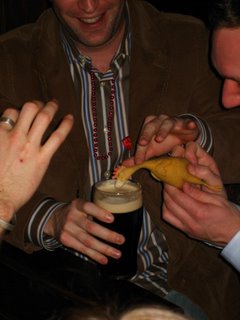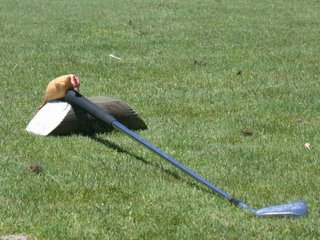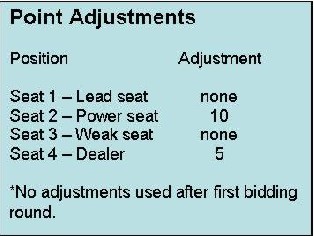 Euchre QOD: “I like to foster internecine”
Euchre QOD: “I like to foster internecine”
Bagging is sneaky
Some say it’s also dirty
Don’t use it often.
“Passing Dirty” – This is when your opponent is dealing, you have a good hand, but you pass. You are hoping they’ll pick it up and then you can euchre them. This is also known as “bagging”. And if you do it, you are known as the “bagger”. It’s not such a great strategy unless you are sitting in the weak seat (number 3).
This was a situation that came up in league play tonight. My partner ordered up diamonds and I held the Left and King of trump. The player to my right won the first trick with the Ace of spades and led a low spade next. I then had to decide, should I trump with the Left or the King of trump? In this situation, you should trump with your higher card. This play is advantageous in various ways.
2. It lets your partner know where the Left trump is (she was wondering, trust me).
3. It also lets your partner know that you might have another, lower trump
League Night
My regular partner was out sick today so I had a sub. With his excellent help we were able to win 3 of the 5 games, dashing the play-off hopes of the 42nd place team. I felt kinda bad about it because the win didn’t matter much to us but a victory for them would’ve meant a play-off appearance. Oh well, I had to play the cards as I got them. There were some interesting plays…partner was euchred when trying to go alone, opponents not over-trumping when they could. But the coup de graze was my loner from the pasture to win the game and match 10-8. It was quite exciting.









